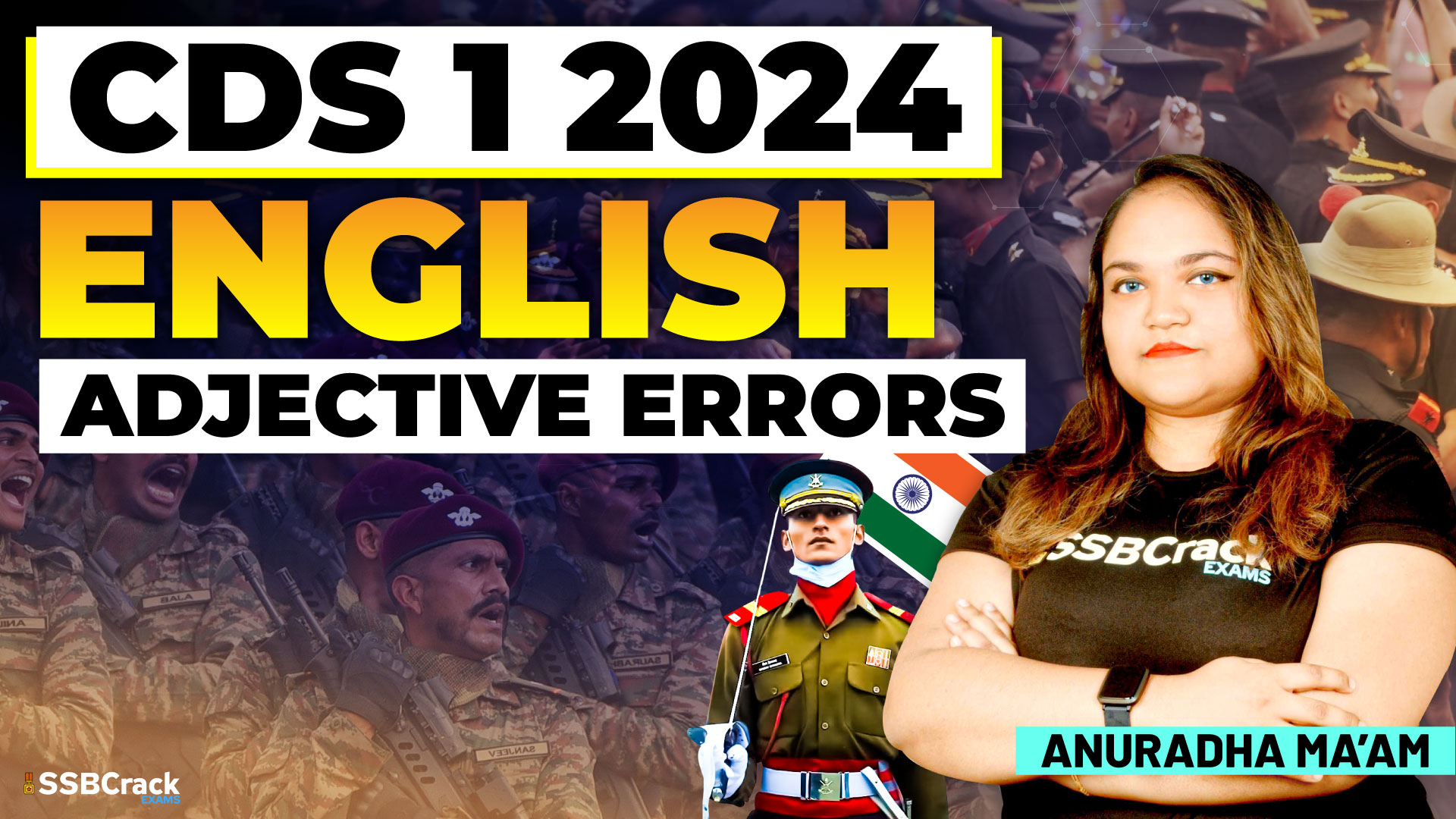The Combined Defence Services (CDS) examination stands as a formidable challenge for individuals aspiring to serve in the esteemed armed forces. Within the English section of the examination, a solid command of grammar, particularly adjectives, is not just beneficial but is integral to effective communication. This article aims to underscore the importance of mastering adjectives, provide insights into how to use them effectively in sentences, and shed light on various adjective errors that CDS aspirants should be cautious about while preparing for the exam.
- The Role of Adjectives in Communication: Adjectives are linguistic tools that add precision and vividness to descriptions. In the military, where clarity and accuracy in communication are of utmost importance, mastering adjectives is crucial. Adjectives contribute to the ability to convey characteristics, qualities, and attributes with precision—a skill essential for military officers.
- Effective Use of Adjectives:a. Descriptive Power: Adjectives enhance the descriptive power of nouns, providing more information about their qualities. For example, in phrases like “rugged terrain,” “disciplined soldiers,” and “strategic planning,” adjectives offer a more vivid portrayal.b. Quantifying and Qualifying: Adjectives serve to quantify and qualify nouns. Whether indicating quantity (“several soldiers,” “ample supplies”) or quality (“precise coordinates,” “resilient equipment”), adjectives contribute to nuanced expression.c. Comparative and Superlative Forms: Adjectives take comparative and superlative forms to express degrees of comparison. For instance, “braver soldiers,” “more advanced technology,” and “the most strategic location.”d. Proper Placement: Proper placement of adjectives in a sentence is crucial for maintaining clarity and coherence. Adjectives generally precede the noun they modify, as in “a sturdy vehicle” or “an experienced leader.”
- Common Adjective Errors to Beware Of:a. Misuse of Comparative Forms: CDS aspirants should be cautious about using the correct forms of comparative adjectives. Errors like “more better equipment” should be corrected to “better equipment.”b. Overuse of Adjectives: While adjectives enhance descriptions, overusing them can lead to redundancy and lack of clarity. Aspirants should strike a balance and avoid excessive adjectival modification.c. Incorrect Adjective-Noun Agreement: Adjective-noun agreement is crucial. Errors like “the soldier are disciplined” should be corrected to “the soldiers are disciplined.”d. Inconsistent Adjective Forms: Maintaining consistency in adjective forms is essential. For example, “the exercise was both tough and challenging” is preferable to “the exercise was tough and challenge.”e. Improper Order of Adjectives: Adjectives should follow a specific order when used together. Errors like “a red big flag” should be corrected to “a big red flag.”
- Strategies to Avoid Adjective Errors:a. Thorough Understanding of Adjective Rules: Aspirants should have a comprehensive understanding of adjective rules, including forms of comparison, agreement, and proper placement.b. Contextual Analysis: Analyzing the context of a sentence and considering the nuances of meaning helps in choosing the most suitable adjectives.c. Regular Practice: Regularly practicing sentences that involve adjectives assists in reinforcing correct usage and identifying potential errors.d. Consulting Grammar Resources: Referring to reputable grammar resources and style guides aids in clarifying rules and understanding the nuances of adjectives.e. Peer Review: Engaging in peer or instructor review of written exercises enhances awareness of potential adjective errors and fosters improvement.
Conclusion:
In conclusion, a strong command of adjectives is indispensable for CDS aspirants seeking success in the English section of the examination. By being vigilant about common adjective errors and implementing strategic study practices, aspirants can fortify their linguistic skills and align themselves with the disciplined communication standards expected in military service. A profound understanding of adjectives is not just a test-taking necessity but a foundational skill that contributes to effective communication in the dynamic and challenging environments inherent to a career in the armed forces.







